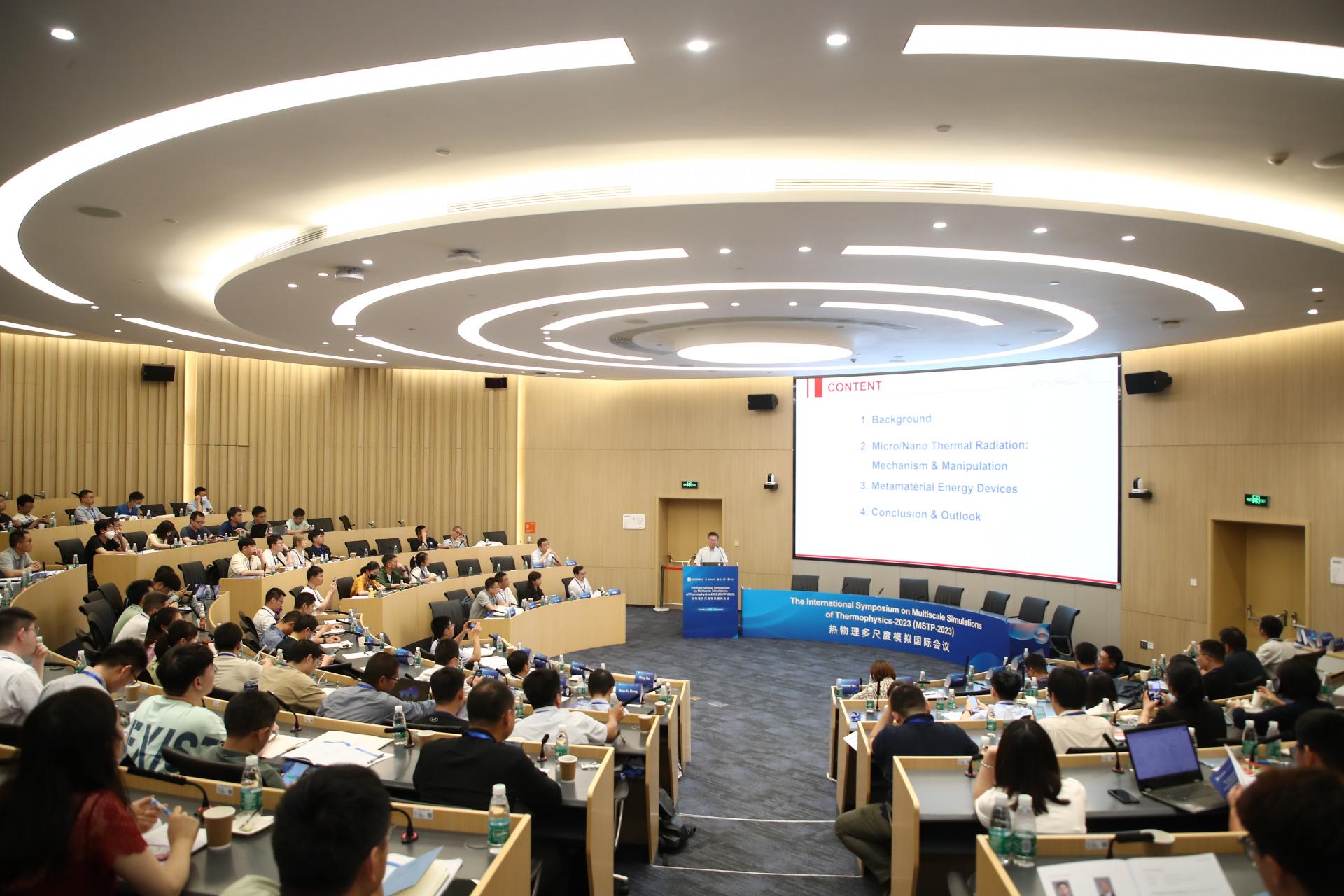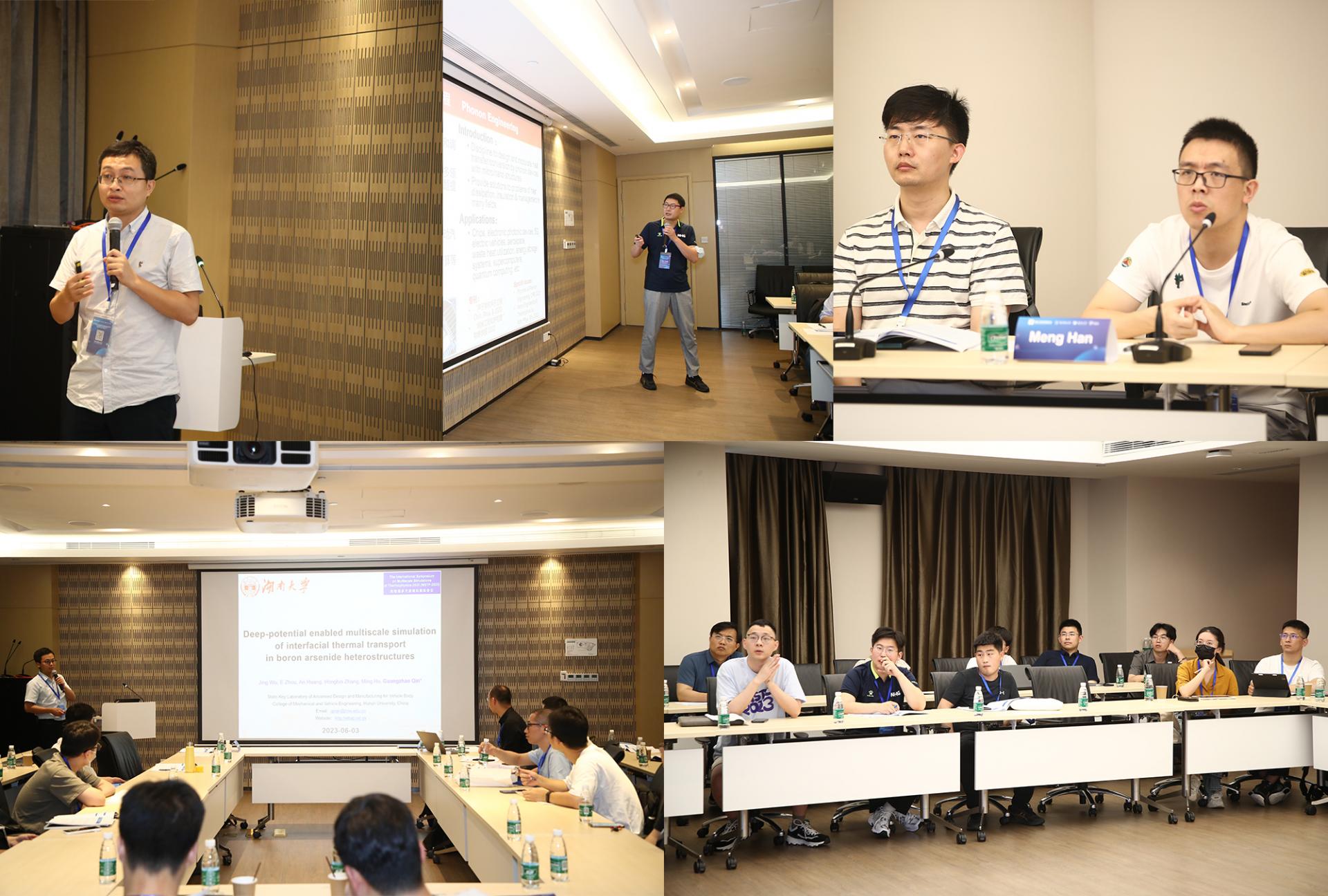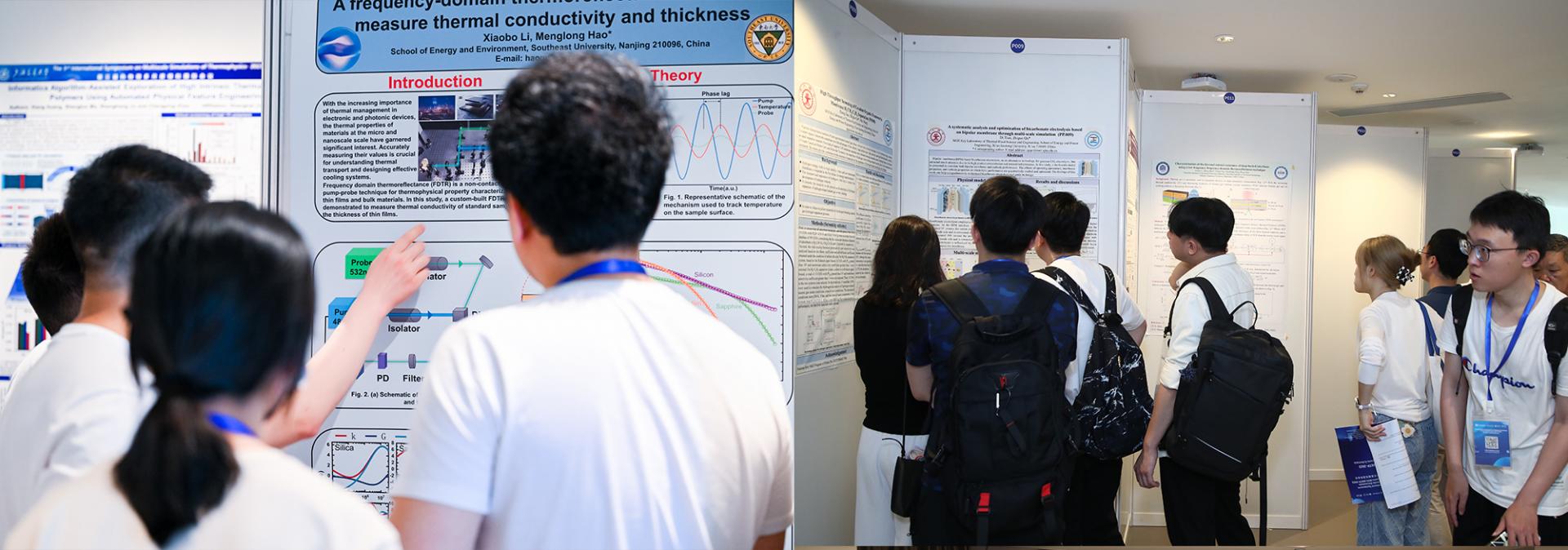From June 2 to 4, the 3rd International Symposium on Multiscale Simulations of Thermophysics 2023 (MSTP-2023) was held at the Southern University of Science and Technology (SUSTech) Convention Center.
This symposium was organized by Youth Working Committee of Heat and Mass Transfer Branch of Chinese Society of Engineering Thermophysics, SUSTech, Shenzhen University (SZU), and Energy Institute for Carbon Neutrality of SUSTech, and co-organized by the Department of Mechanical and Energy Engineering of SUSTech and the College of Chemistry and Environmental Engineering of SZU.
Prof. Tianshou ZHAO, Director of Energy Institute for Carbon Neutrality of SUSTech, served as the Academic Chair of the symposium. Prof. Bingyang CAO, Dean of the School of Aerospace Engineering of Tsinghua University, and Xinwei WANG, Professor of Iowa State University, were the Conference Chairs of the symposium.
More than 200 scholars in the field of thermophysics participated in the symposium to discuss cutting-edge topics in thermophysics. The symposium included a plenary meeting, parallel sessions, and a poster session.
It covered nine topics representing the frontier of thermophysics, including heat transfer in low-dimensional materials, advanced thermal management, new energy technologies, multiscale simulations, transport of electrons and phonons, radiation heat transfer, heat and mass transfer in advanced materials, thermal fluid dynamics, and thermophysical properties and characterization.

Prof. Tianshou ZHAO delivered a speech at the opening ceremony. He introduced the achievements of SUSTech, the progress made in the field of thermophysics, and the development of the Energy Institute for Carbon Neutrality, which was established in response to the national “dual carbon” strategy.
Prof. Bingyang CAO talked about the history of the International Symposium on Multiscale Simulations of Thermophysics, and emphasized the importance of developing multiscale simulation technology in thermophysics.
Four internationally renowned scientists were invited to present plenary lectures at the symposium.
Prof. Baowen LI, Academician of Academia Europaea and Chair Professor of the Department of Materials Science and Engineering of SUSTech, introduced the research history of micro-/nano-scale phonon heat conduction and pointed out the potential challenges and opportunities behind non-Fourier heat conduction laws, size effect, etc.
Prof. Ming HU, Professor of Mechanical Engineering of University of South Carolina, talked about his achievements in using machine learning algorithms to predict thermophysical properties.
Prof. Chang-Ying ZHAO, Director of Institute of Engineering Thermophysics and Dean of China-UK Low Carbon College of Shanghai Jiao Tong University (SJTU), discussed how to control the phase and wave vector of thermal radiation with metamaterial devices.
Prof. Sebastian Volz from the Laboratory for Integrated Micro-Mechatronic Systems (LIMMS) at the University of Tokyo introduced his achievements online on bridging the phonon gas model and phonon wave model, and pointed out the importance of phonon coherence in heat conduction analysis.

In the parallel sessions, the scholars took in-depth exchanges and discussions around the latest achievements in the direction of multiscale simulations of thermophysics.

In the poster session, scholars held exchanges and evaluations of the academic posters. The posters were evaluated by reputable scholars, including Li CHEN, Professor at Xi’an Jiaotong University, Menglong HAO, Professor at Southeast University, Qin-Yi LI, Professor at Kyushu University, Kai CHEN, Professor at South China University of Technology, Yue YANG, Professor at Harbin Institute of Technology, Shenzhen (HIT Shenzhen), Weidong ZHENG, Professor at Shandong Institute of Advanced Technology, and Yucheng XIONG, Professor at Donghua University. Six students won the Best Poster Award.
Proofread ByYingying XIA
Photo By